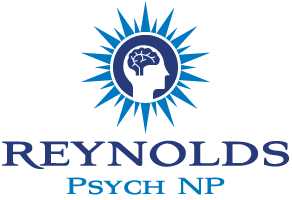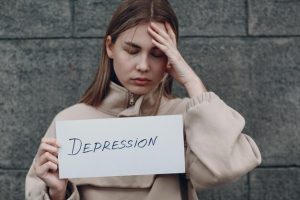Depression is one of the most widespread mental health conditions, affecting an estimated 280 million people globally according to the World Health Organization (WHO). It can cause persistent sadness, loss of interest, fatigue, sleep problems, and difficulty functioning in daily life.
Many people find relief with medication, but others want to know how to manage depression without medication. Some wish to avoid side effects, while others prefer natural methods or additional coping tools. The good news is that several proven strategies can help reduce symptoms of depression naturally and improve overall well-being.
Understanding Depression
Depression is more than feeling sad for a few days. It is linked to chemical imbalances in the brain, particularly involving neurotransmitters such as serotonin, dopamine, and norepinephrine. Stress, genetics, and life events can all play a role.
Without treatment, depression can last months or even years. That is why learning strategies to manage it naturally is an important step toward recovery and long-term mental health.
1. Psychotherapy and Counseling
One of the most effective non-medication approaches is psychotherapy, particularly Cognitive-Behavioral Therapy (CBT) and Interpersonal Therapy (IPT).
- CBT helps identify and change negative thought patterns that contribute to depression. For example, replacing “I am a failure” with “I have challenges, but I also have strengths.”
- IPT focuses on improving relationships and communication, which often improves mood.
Research from the National Institute of Mental Health (NIMH) shows that psychotherapy alone can reduce depressive symptoms significantly, especially when practiced consistently.
2. Exercise as Natural Medicine
Exercise is one of the strongest natural treatments for depression. Physical activity releases endorphins and stimulates the production of brain-derived neurotrophic factor (BDNF), which supports brain health.
- The Harvard Medical School found that just 15 minutes of running or 1 hour of walking daily can reduce the risk of major depression by 26 percent.
- Exercise also improves sleep, reduces stress, and builds confidence.
Good choices include: brisk walking, yoga, cycling, swimming, or strength training. Even starting with 10 minutes a day can help.
3. Nutrition and Brain Health
Food has a direct impact on mood and brain function. A balanced diet provides nutrients that support healthy brain chemistry.
Helpful nutrients include:
- Omega-3 fatty acids (found in salmon, walnuts, flaxseeds) for mood regulation.
- Folate and B vitamins (found in leafy greens, beans, and whole grains) for neurotransmitter production.
- Magnesium (found in nuts, seeds, and spinach) for calming the nervous system.
- Probiotics (found in yogurt, kefir, and fermented foods) to support the gut-brain connection.
Foods to limit: processed sugar, refined carbs, alcohol, and high caffeine intake, all of which may worsen mood fluctuations.
4. Sleep Hygiene and Routine
Sleep and depression are deeply connected. Poor sleep worsens depressive symptoms, while depression often makes sleep harder. Improving sleep hygiene is therefore essential.
Practical steps:
- Stick to a regular bedtime and wake-up schedule.
- Create a calming evening routine such as reading or light stretching.
- Keep the bedroom cool, dark, and quiet.
- Avoid screens at least one hour before bed.
A study in Sleep journal showed that restoring healthy sleep patterns reduced depressive symptoms by 40 percent in participants with insomnia and depression.
5. Mindfulness and Meditation
Mindfulness practices such as meditation, deep breathing, and yoga can help break the cycle of negative thinking.
- Mindfulness-Based Cognitive Therapy (MBCT) combines meditation with cognitive therapy and has been shown to reduce relapse in people with recurrent depression.
- Daily practice can reduce rumination, increase emotional awareness, and improve self-compassion.
Even five to ten minutes of guided meditation daily can bring gradual improvement.
6. Social Support and Connection
Isolation is one of the biggest risk factors for worsening depression. Building and maintaining supportive relationships can have a strong positive effect.
- Talking to friends or family provides perspective and reduces loneliness.
- Joining a support group creates a sense of belonging.
- Volunteering can give meaning and purpose, improving mood.
According to a study in the Journal of Affective Disorders, strong social connections reduced the risk of developing depression by nearly 50 percent.
7. Light Therapy
For people with seasonal depression, also known as Seasonal Affective Disorder (SAD), light therapy is a highly effective non-medication treatment.
- Special light boxes that mimic natural sunlight help regulate the body’s internal clock.
- Daily use in the morning for 20 to 30 minutes often improves energy and mood.
Research from the American Psychiatric Association confirms that light therapy is particularly useful for winter depression.
8. Journaling and Expressive Writing
Writing down thoughts and emotions can help process negative feelings and create clarity.
- Journaling about daily gratitude improves positive thinking.
- Writing about stressful events helps reduce their emotional intensity.
A study from the University of Texas found that expressive writing for 15 minutes a day improved mood and reduced depressive symptoms over time.
9. Limiting Stress and Building Healthy Habits
Stress management is key to managing depression naturally. Small lifestyle changes can make a big difference.
- Practice time management to avoid overwhelming workloads.
- Limit social media if it increases comparison or negativity.
- Spend time outdoors, as exposure to nature has been shown to improve mood.
These steps may seem small but can build resilience over time.
When to Seek Professional Help
Learning how to manage depression without medication can be life-changing, but it does not replace professional care when symptoms are severe. If depression leads to thoughts of self-harm, inability to function daily, or overwhelming hopelessness, it is essential to reach out for help immediately.
Therapists, counselors, and support groups can provide non-medication strategies. In some cases, medication may still be necessary for recovery.
Final Thoughts
Managing depression naturally is possible for many people. Psychotherapy, exercise, nutrition, mindfulness, strong social support, and healthy sleep are powerful tools that improve mood and restore balance. These methods require consistency and patience, but research shows they can be just as effective as medication in many cases.
If your symptoms are intense or you want to explore whether medication could support your recovery, contact us today for expert guidance and care







